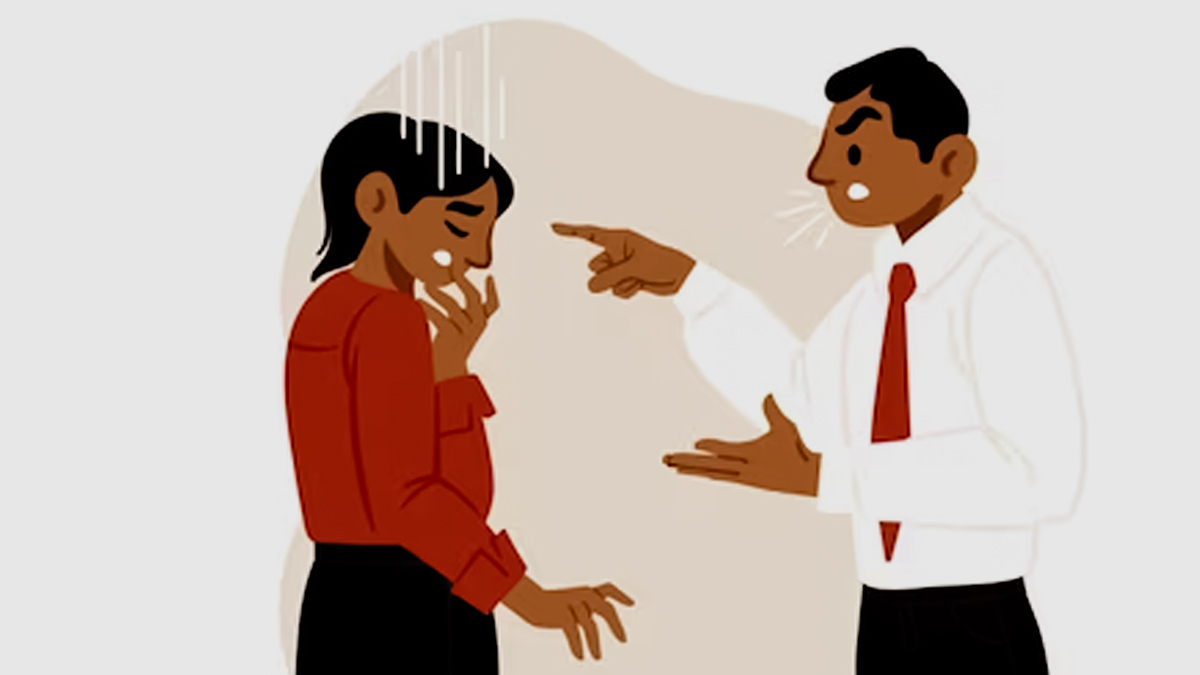
Words can be considered as a sharp and piercing weapon, capable of causing wounds that are not visible on the surface but deeply scar the psyche. Verbal abuse, like a slow-acting poison, can have long-lasting and subtle repercussions on its victims. Hurtful remarks can cause pain that lasts for years, festering and growing like a weed, gradually undermining self-esteem and leaving a trail of emotional ruin in its wake.
Table of Content:-
It is a form of emotional abuse that involves the use of words to intimidate, control, or belittle another person. Unlike physical abuse, verbal abuse is not always visible, but it can have severe and long-lasting consequences on a person's mental health and well-being. In this article, we will explore the long-term effects of verbal abuse and the steps one can take to deal with it.
Effects of Verbal Abuse
Verbal abuse can have various long-term effects on a person's mental health and well-being. Some of the most common effects of verbal abuse include:
Low Self-esteem
Verbal abuse can erode a person's self-esteem and make them doubt their worth and abilities. A person who has been subjected to constant criticism and put-downs may start to believe that they are worthless and undeserving of love and respect.

Anxiety and Depression
Verbal abuse can lead to anxiety, depression and other mental health issues. The constant negativity and criticism can create a sense of hopelessness and helplessness, leading to feelings of anxiety and depression.
Relationship Problems
Verbal abuse can also harm a person's relationships in the long run. A person who has been verbally abused may struggle to trust others, build deep connections, and experience intimacy.
Steps to Deal with Verbal Abuse
If you are experiencing verbal abuse, it is essential to take steps to protect yourself and seek help. Here are some steps you can take to deal with verbal abuse:
Recognise the Abuse
Recognising verbal abuse for what it is the first step in dealing with it. Verbal abuse can be subtle, making it difficult to identify as abuse. You may be subjected to verbal abuse if you are constantly subjected to criticism, put-downs, and insults.

Set Boundaries
Once you have recognised the abuse, it is essential to set boundaries. Let the abuser know that their behaviour is not acceptable, and that you will not tolerate it. If the abuser continues to behave in an abusive manner, you may need to consider ending the relationship.
Seek Support
Verbal abuse can be isolating, and it can be challenging to seek help. However, it is essential to seek support from friends, family or a therapist. A therapist can provide you with tools to cope with the abuse and work through the long-term effects of the abuse.
Practice Self-Care
Self-care is essential when dealing with verbal abuse. Make time for activities that you enjoy and that make you feel good about yourself. Exercise, eat well and get enough sleep. Taking care of yourself can help you feel stronger and better able to deal with the abuse.
Verbal abuse can have severe and long-lasting consequences on a person's mental health and well-being. If you are experiencing verbal abuse, it is essential to recognise it for what it is, set boundaries, seek support, and practice self-care. Remember that you are not alone, and there is help available.
Also watch this video
How we keep this article up to date:
We work with experts and keep a close eye on the latest in health and wellness. Whenever there is a new research or helpful information, we update our articles with accurate and useful advice.
Current Version